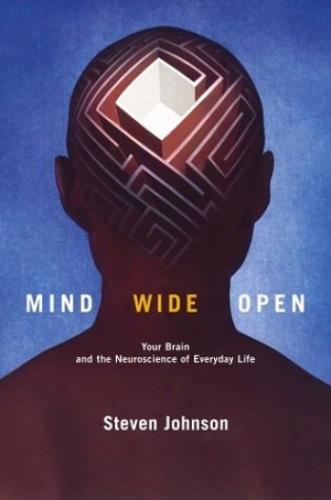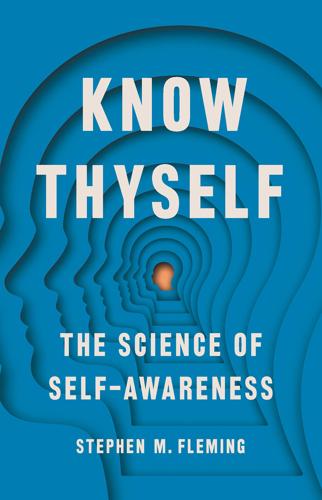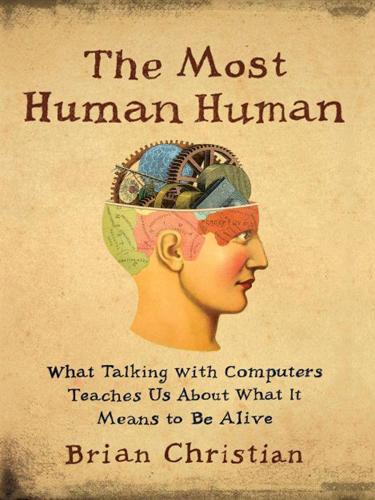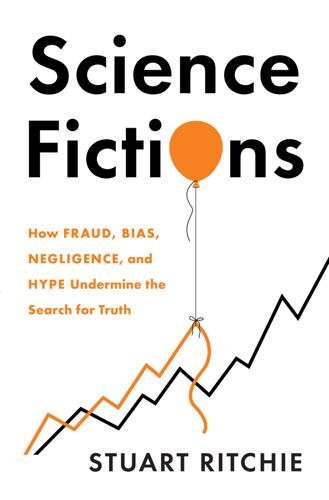
Mind Wide Open: Your Brain and the Neuroscience of Everyday Life
by
Steven Johnson
Published 2 Jan 1999
Or you think you’ve mastered the basics of evolutionary theory, and then someone makes a passing reference to some subfield of Darwinian thought that you’ve never encountered-spandrels, say, or the prisoner’s dilemma. Your brain suddenly stands at attention: “Hey, what was that?” You can see this mechanism captured in the wonderful French expression l’esprit d’escalier-literally, “the wit of the staircase”-that the Oxford Dictionary of Quotations defines as follows: “An untranslatable phrase, the meaning of which is that one only thinks on one’s way downstairs of the smart retort one might have made in the drawing room.” We haven’t thought of the smart retort in the drawing room because the barb we’re responding to surprised us, caught us off guard.
…
contemplation conversation group humor in internal irrelevant detours in laughter and processing of silent stilted with loved ones corpus callosum cortex auditory cingulate motor prefrontal sensory stimulation of thalamus link to visual corticotropin-releasing factor (CRF) cortisol cranium cravings crying cyclic AMP Damasio, Antonio danger avoidance of borderline sense of consciousness of, seefear Darwin, Charles Dawkins, Richard daydreaming deafness death drive decisions: rational unconscious depression Diamond, Jared divided self concept DMT DNA Donoghue, John dopamine Doppler radar images dorsal striatum Dostoyevsky, Feodor dreams drugs addiction to antistress “bad trip” paranoia and endogenous exogenous mood-altering narcotic overdosing on painkiller psychedelic recreational war on Duchenne de Boulogne, Guillaume Benjamin Amand Dungeons and Dragons ears inner musical training of Edelman, Gerald education EEGs EEG Spectrum ego Ekman, Paul electricity electric shock integrating other stimuli with electrodes email Emergency, Emory University emotions: chemical changes and eyes and expression of limbic system and memory and numbering of primary vs. secondary “rationality” vs. recognition and evaluation of remote study of subjugation of triggers of understanding of wide range of see also moods; specific emotions empathy encoding audio reverse visual visual, endogenous chemicals endorphins natural high of painkilling effects of energy enkephalins environments adaptation to internal predator-rich epilepsy EST estrogens eugenics evolution brain love and see also psychology, evolutionary exercise: memory mental weight training expressions happy memorizing of reading of Expressions of the Emotions in Man and Animals, The (Darwin) extrasensory perception (ESP) extroversion eyebrows eye-reading test eyes communication with emotion expressed through gleams in information received through movement of reading of studying images of see also gaze monitoring; vision faces: contortion of expressions on neurological damage of reading and study of recognition of Fallahpour, Kamran fear alert clarity in amygdala and bodily response to brain pathways of conditioning of genetic origins of memories of personal history and rational vs. irrational sound and triggers of “working through” Feldt, Ken feminism fight-or-flight response fingerprints flashbacks flying, fear of focus/execute skills Fouts, Roger free associations Freud, Sigmund core concepts of influence of works of Freudian slips frontal lobe “Funes the Memorious” (Borges) GABA Garcia, Sergio gaze monitoring genes genius, musical glucocortocoid glucose glutamate glycogen Godard, Jean-Luc Golden Bowl, The (James) golf Google Gould, Stephen Jay grins suppression of guilt hallucinogens Hamburger, Victor hand gestures happiness smiling and laughing as signs of Harvard University head injuries hearing heart rate acceleration of regulation Hebb, Donald Hebbian learning hedonism heights, fear of heroin hippocampus Hirsch, Joy hormones sex stress see also specific hormones HPA system human species: biology of shared characteristics of as social primates struggles and drives of survival and reproduction of humor in conversation dark laughter and see also jokes Huxley, Aldous hyperventilation hypothalamus hysterics id ideas identity crisis imagination imaging technologie see also specific technologies immune system antibodies Impressionism incest incestuous amplification Insel, Tom insomnia inspiration instincts bonding decisions made by gut feeling high speed corridors of protective sexual social tending intelligence Internet introspection intuition IQs testing of irritation James, Henry James, William jealousy Johnson, Samuel jokes response to Jokes and Their Relationship to the Unconscious (Freud) Kafka, Franz Kandel, Eric Keats, John Klein, Robert Kramer, Peter language brain and female skills in music and origins of processing of written see also speech laughter contagiousness of conversation and evolution of humor and social instinct of uncontrollable Laughter: A Scientific Investigation (Provine) “law of seven,” learning: amygdala and conditioned experience and Hebbian synaptic LeDoux, Joseph l’esprit d’escalier light limbic system Listening to Prozac (Kramer) lithium logic long-decay theory Lou Gehrig’s disease love bonding and capacity for chemistry of evolution and falling in gazes of romantic sex and smiling and transformative power of uniqueness of LSD McGaugh, James Maclean, Paul magic magnetic resonance imaging (MRI) manic-depression Man Who Mistook His Wife for a Hat, The (Sacks) marijuana Marx, Karl Maryland, University of mathematical skills Matrix, The mechanical systems Mechanism of the Human Physiognomy (Duchenne de Boulogne) medial frontal gyrus meditation deep transcendental Memento memory, memories aging and amygdala and blocked formulation of childhood “chunking” data and declarative emotions and encoding and enhanced of fear flashbulb forming of lapses of long-term muscle novelty and surprise recorded in number of pain perception of present and photographic procedural reactivating and rewriting of reliving of repression of short-term, loss of social spatial storage of stress and testing of trace transformative nature of traumatic working memory game mental illness migraines Miller, George mind: distracted states of exercise of illusions and tricks of opening of perceptiveness of mindblindness mind-expansion movements mind reading emotional expression recognition and evaluation of self and others in eye-reading and impairment of literary example of quantifying skills of simulation theory of transformative power of mirrors miscarriage modules monkeys monogamy mood congruity moods blue changes of electrochemical triggers of perception of morphine Morrison, Van motion detection mouths Mrs.

Lurking: How a Person Became a User
by
Joanne McNeil
Published 25 Feb 2020
The increase of information about myself that I documented through the internet did not correspond with an increase in moments that were significant to me. Writing and photographing grew less precious and deliberate. I spun my existence into digital content in an act that was a way to preserve memories as much as it was a way to communicate with others and extinguish loneliness. It is either that there are no feelings of l’esprit de l’escalier on the internet or that the internet is all staircase wit. Social media on mobile had a different tempo and friction as users documented in the moment, rather than retrospectively. Posts to Instagram and Twitter were on the go, rather than composed with a moment of reflection. The formality of communication online went away; posting was no longer deliberate, like essay-writing, but casual, even when it wasn’t temporary.

Know Thyself
by
Stephen M Fleming
Published 27 Apr 2021
The only way it can correct ham-fisted errors in your typing is by having some running estimate of what word you intended to say in the first place (and if those estimates are, in fact, at odds with your intentions, then you experience maddeningly persistent sabotage). This is also intuitively true of self-awareness. We can only recognize our errors and regret our mistakes if we know what we should have done but didn’t do. The French have a wonderful phrase for this: “L’esprit d’escalier,” or staircase wit. These are the things you realize you should have said upon descending the stairs on your way out of a party. In this chapter, we will discover a panoply of algorithms that predict and correct our actions. As we will see, brains of all shapes and sizes have exquisite fail-safe mechanisms that allow them to monitor their performance—ranging from the smallest of corrective adjustments to the movement of my arm as I reach out to pick up my coffee, all the way to updating how I feel about my job performance.

The Most Human Human: What Talking With Computers Teaches Us About What It Means to Be Alive
by
Brian Christian
Published 1 Mar 2011
In Medeksza’s view, speed proved the decisive factor. “[Cleverbot’s larger database] actually seemed to be a disadvantage,” he told an interviewer after the event. “It sometimes took [Cleverbot] a bit long to answer a judge as the computer [couldn’t] handle that amount of data smoothly.” I think of the great French idiom l’esprit de l’escalier, “staircase wit,” the devastating verbal comeback that occurs to you as you’re walking down the stairs out of the party. Finding the mot juste a minute too late is almost like not finding it at all. You can’t go “in search of” the mot juste or the bon mot. They ripen and rot in an instant.

This Is Life
by
Dan Rhodes
Published 1 Mar 2012
She reflected that if Herbert really had been a rubber trial baby, she would have lost points for taking him outside bare-headed. Monsieur Simoneaux had missed a trick there – the built-in thermometer would have recorded her mistake. While she waited for the bus to come she felt her way through the baby’s bag in search of his hat, which she put on his head. As she did so, she was haunted by l’esprit de l’escalier: she would have saved a lot of bother if she hadn’t hidden Herbert from Old Widow Peypouquet, and had just told her that she was looking after the baby for a friend who was out of town for a few days. It would have made a lot more sense. The bus came, and they struggled on. It was still too early for the shops to be open, but she was going to head for Le Marais anyway.

Three Years in Hell: The Brexit Chronicles
by
Fintan O'Toole
Published 5 Mar 2020
We know, we care and we have a right to say that we should be left alone to get on with the long process of accepting each other. 13 August 2019 Knowing how to make a grand entrance is all very well but, as the Brexit saga reminds us, the ability to make a dignified exit is even more important. There is a lovely French phrase, l’esprit de l’escalier, that signifies the moment at the bottom of the staircase when you think of what you should have said as you were leaving. The Brexiteers have not yet decided what it is they should have said before the decision to depart was made in June 2016. The words of Captain Lawrence Oates as he left the tent to walk into the blizzard near the bitter end of Robert Falcon Scott’s doomed expedition to the South Pole, seem to be as much as they can manage: we are going out now, and we may be some time.

Science Fictions: How Fraud, Bias, Negligence, and Hype Undermine the Search for Truth
by
Stuart Ritchie
Published 20 Jul 2020
., ‘Alcohol Consumption and Lifetime Change in Cognitive Ability: A Gene × Environment Interaction Study’, AGE 36, no. 3 (June 2014): 9638; https://doi.org/10.1007/s11357-014-9638-z. I’ve also almost definitely engaged in hype: I’ve had several conversations about science with journalists where I’ve been too loose with language or, in l’esprit d’escalier fashion, I’ve later regretted not adding important cautions and caveats. And I’ve made the mistake of arguing that ‘there are hundreds of published, peer-reviewed papers on this topic’, as if that was some indicator of truth. And talking of peer review, there have certainly been occasions where I haven’t given a paper that I’m reviewing the time it deserves and might inadvertently have allowed errors to slip through.

Never Let a Serious Crisis Go to Waste: How Neoliberalism Survived the Financial Meltdown
by
Philip Mirowski
Published 24 Jun 2013
Furthermore, as if that weren’t bad enough, no one volunteers to relive a nightmare; what they want is to be rousted back to the comforts of consciousness. The latter-day appeal of these crisis books seems to have become limited to those who harbor a penchant for crunch porn. By 2012, it seems most people had begun to tune out most serious discussions, and flee the tsunami of l’esprit de l’escalier. There was a short interlude when editorial cartoonists and TV comedians tried to turn the whole thing into a joke, portraying how buffoon bankers bemoaned that the restive public just could not understand that they were the only ones who could clean up the godawful mess they had made, and proved petulant and unrepentant when Uncle Sam unloaded truckloads of money to pay them to do just that.

Back to Blood
by
Tom Wolfe
Published 1 Jan 2012
But she was in the throes of Why didn’t I, that dreadful interlude when you’re walking upstairs to go to bed or speeding madly down Collins Avenue—after the party is over—and now you think of the comebacks you should have made… to obliterate that bastard who kept scoring points off you in conversation at dinner this evening… not that Magdalena knew the term l’esprit de l’escalier, but she was living it right now… furiously, uselessly ransacking her brain. Sergei was in such good spirits, he never noticed how silent and sunken in thought Magdalena was… and now he was off on the subject of Flebetnikov, the Russian who had invited them to the party they were heading for, at his mansion, estate, palace on Star Island—you really couldn’t give it too grand a name… and hadn’t she noticed that every Russian in Miami who lived in a big house was called an “oligarch”?

Enlightenment Now: The Case for Reason, Science, Humanism, and Progress
by
Steven Pinker
Published 13 Feb 2018
The student’s ingenuous tone made it clear that she was neither suicidal nor sarcastic but genuinely curious about how to find meaning and purpose if traditional religious beliefs about an immortal soul are undermined by our best science. My policy is that there is no such thing as a stupid question, and to the surprise of the student, the audience, and most of all myself, I mustered a reasonably creditable answer. What I recall saying—embellished, to be sure, by the distortions of memory and l’esprit de l’escalier, the wit of the staircase—went something like this: In the very act of asking that question, you are seeking reasons for your convictions, and so you are committed to reason as the means to discover and justify what is important to you. And there are so many reasons to live! As a sentient being, you have the potential to flourish.

Surfaces and Essences
by
Douglas Hofstadter
and
Emmanuel Sander
Published 10 Sep 2012
Here, we would like to even up the score by giving English speakers the chance to experience the just-described feeling of vacuum, and to do so we will cite a typical French idiomatic phrase, often attributed to the philosopher Denis Diderot, that has no good English counterpart (and of course this one isn’t unique; there are hundreds of others) — namely, “avoir l’esprit d’escalier”. What does this mean? Well, translated literally (in the manner of Jean-Loup Chiflet’s books), it means “to have the spirit of staircase”, but as an idiom it basically means “to come up with the ideal retort to an annoying remark right after one has left the party and is heading down the stairs”.